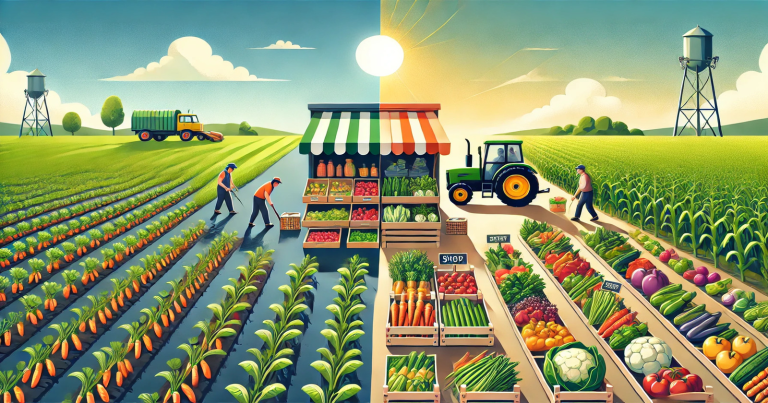Cooperative societies are based on collective effort, mutual aid, and democracy, thus giving every member a voice in decision-making. A cooperative society is a voluntary organization in which individuals with common interests pool their resources to achieve objectives beneficial to all members. There are different types of cooperative societies, including groups formed to address specific needs in agriculture, housing, credit, and consumer goods.
What is a Cooperative Society?
A cooperative society is an autonomous association of persons united voluntarily to meet their everyday economic, social, and cultural needs and aspirations through a jointly owned and democratically controlled enterprise. Mainly, the societies are set up to promote the welfare of their members by pooling resources and sharing profits among members. The cooperative societies focus on service rather than profiteering; in other words, they are interested in members’ general well-being and ensure fair distribution and member participation in the decisions.
Explain the Types of Cooperative Society?
Cooperative societies are numerous and vary significantly in their objectives and structures. However, there are several main categories under which these cooperative societies can be classified. Each category of cooperative society addresses specific needs of its members and adheres to the fundamental cooperative principles, which include voluntary and open membership, democratic member control, member economic participation, autonomy and independence, education, training and information, cooperation among cooperatives, and concern for the community.
Consumer Cooperatives
Consumer cooperatives are retail businesses owned and operated by their members to provide goods and services at the lowest possible cost. These cooperatives buy in bulk and sell products directly to their members, often passing on the savings. Members vote on major decisions and elect a board of directors from among their number to oversee operations.
Producer Cooperatives
Producer cooperatives are producer-owned organizations — farmers, artisans, and craftsmen banding together to process, market, and sell their products more effectively and economically. By pooling their production, they obtain scale and bargaining power, reducing costs and increasing market access.
Housing Cooperatives
Housing cooperatives typically provide residential properties to its members. A member of such a cooperative does not own the housing unit; he rather owns shares in the cooperative, which entitles him to a right to occupy a unit as long as he complies with the rules and regulations provided by that cooperative.
Credit unions
Credit unions: Known to be financial cooperatives, these provide their members with a safe place to save and borrow money at reasonable rates. Since they are owned by the people who use their services, the profits of credit unions are returned to their members in the form of reduced fees, higher savings rates, and lower loan rates.
Worker Cooperatives
Worker cooperatives are owned and controlled by their workers. Worker-owners share the burdens of ownership and its benefits. Profits are distributed among worker-owners based on their contributions to the cooperative, not according to their capital stake.
| Type of Cooperative | Description | Example |
| Consumer Cooperatives | These are retail outlets owned and operated by consumers who buy goods in bulk and sell them at reduced prices to their members. | Food Co-op in local communities |
| Producer Cooperatives | Organizations owned by producers (farmers, artisans) who band together to process and market their products, improving cost efficiency and market reach. | Ocean Spray (Cranberry and grapefruit producers) |
| Housing Cooperatives | These provide housing services where members own shares in the cooperative rather than owning real estate directly. | CoHousing Solutions |
| Credit Unions | Financial cooperatives offer members banking services such as deposits, loans, and credit at favorable rates. | Navy Federal Credit Union |
| Worker Cooperatives | Enterprises that are owned and governed by employees, who share the profits and management responsibilities. | Mondragon Corporation in Spain |
Why Do Cooperative Societies Matter?
Cooperative societies are important. They empower people and ensure opportunities for economic participation. It reduces dependence and makes the whole process sustainable. Such cooperatives foster social cohesion through the co-creation of environments. It allows people to work together for mutual benefit. Cooperative societies improve services and goods. They may not be accessible in underprivileged and rural areas.
- Democratic Member Control Cooperatives are democratic organisations controlled by their members who actively participate in setting policies and making decisions.
- Members contribute equitably to and democratically control the capital of their cooperative. Autonomy and Independence Cooperatives are autonomous, self-help organisations controlled by their members.
- Cooperatives offer education and training to their members, elected representatives, managers, and employees so that they can effectively contribute to the development of their cooperatives
Function Of Cooperative Societies
Cooperative societies operate on a democratic principle encapsulated in the motto “one member, one vote.” Regardless of the amount of capital the members invest, each member has an equal say in decision-making processes.
Economic Participation
In terms of the distribution of profits, there is reinvestment into the business or dividend allocation to the owners, proportional to their usage level of the services offered by the cooperative and not to the levels of their contributed capital. These factors keep members engaging with the co-op and more frequently utilizing services.
Autonomy and Independence
Cooperatives are separate legal bodies controlled by their members. Even as they contract with other organizations, be it governments or even raise capital from outside sources, they do so in ways that guarantee member control democratically and thus ensure the autonomy of the cooperatives. This is key to cooperatives being able to serve the needs of their members well without suffering undue influence from the outside, hence keeping their members at the top of their minds in everything they do.
Education, Training, and Information
In addition, cooperatives raise public awareness and sensitization through the general public, especially youth and opinion leaders, on what cooperation is all about and what cooperation has in terms of benefits. This would strengthen the cooperative and, at the same time, sustain it as a relevant one to the community.
Cooperatives Co-Operation
Cooperatives strengthen services, the local economy, and how social and community needs are dealt with by working together through local, national, regional, and international structures. They share their experiences, resources, and efforts on projects that can multiply impact beyond what any cooperative might have achieved. This interconnection not only builds each cooperative but also the movement of cooperatives.
Types Of Cooperative Society FAQs
What is the cooperative society meaning?
A cooperative society is a group voluntarily organized to meet common economic, social, and cultural needs through a jointly-owned and democratically controlled enterprise.
How does the cooperative society act impact these societies?
The Cooperative Society Act provides a legal framework within which cooperative societies operate, ensuring that they adhere to specific guidelines and practices, fostering transparency and democratic control.
Can you tell more about greenwoods cooperative housing society?
Greenwood’s Cooperative Housing Society is likely a residential cooperative providing members with housing options based on cooperative principles, though specific details would depend on the locality and the society’s regulations.
What is the role of an Indian cooperative credit society?
An Indian cooperative credit society offers financial services to its members, including savings and credit facilities, thereby promoting thrift and financial inclusion among its members.
What is Takshila cooperative housing society known for?
Takshila Cooperative Housing Society would be recognized for providing residential facilities to its members under cooperative principles, though specifics would vary based on its particular objectives and operational framework.


